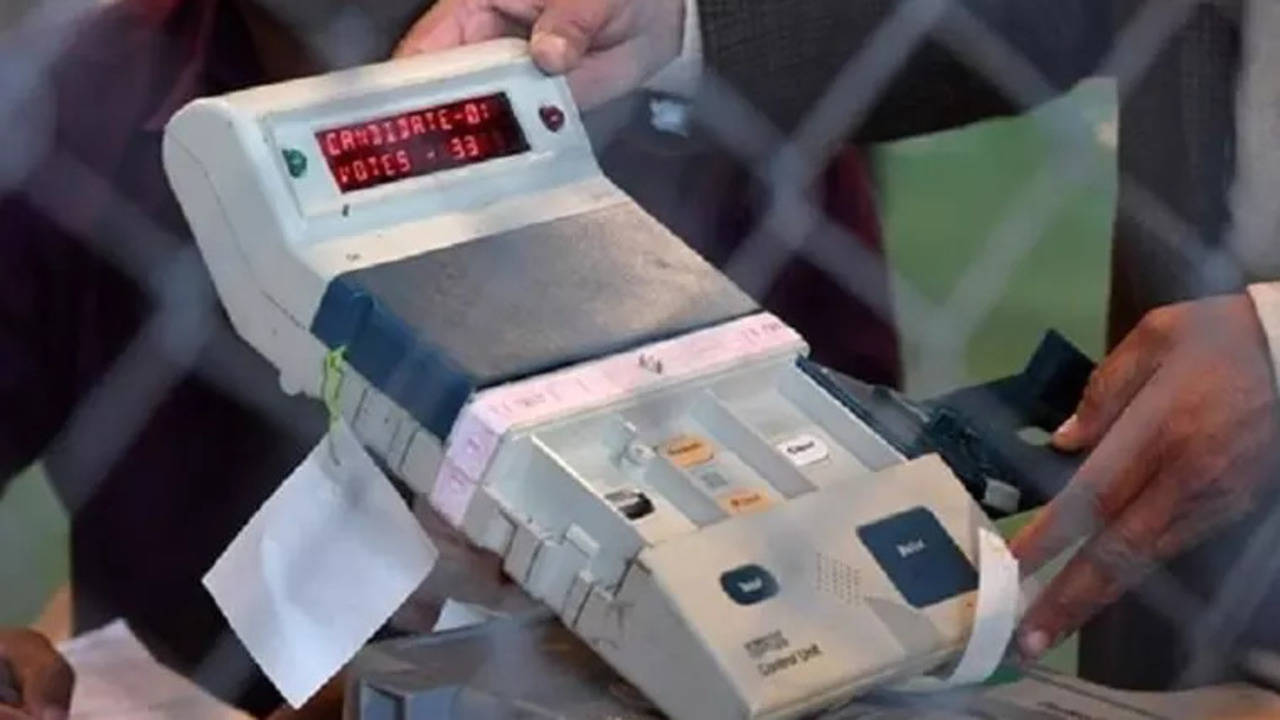
The counting of votes for 90 Assembly constituencies in Jammu and Kashmir and the Haryana Assembly General Elections 2024 will begin at 8 AM today. Election officials along with representatives from political parties will arrive at counting centres by 5am.
Vote counting for Haryana elections
Chief Electoral Officer Pankaj Agarwal announced that 93 counting centres have been set up across the state's 22 districts for the 90 assembly constituencies. Badshahpur, Gurugram, and Pataudi will each have two counting centres, while the remaining 87 constituencies will each have one.
To ensure a smooth counting process, the Election Commission of India has appointed 90 counting observers. "A total of 30 companies of the Central Armed Police Forces have been deployed at the 93 counting centres," the official release quoted Agarwal as saying.
The counting centres will have a three-tier security system, with central security forces at the innermost level, state armed police in the middle, and district police on the outermost layer. Approximately 12,000 police personnel will be deployed at the counting centres.
Further, according to the ECI's statement, "adequate checkpoints have been set up within a 100-metre perimeter of each counting centre." CCTV cameras will monitor all 90 strong rooms housing the Electronic Voting Machines (EVMs) to ensure the security of the voting equipment. Unauthorised individuals will be prohibited from entering these areas, and additional cameras will monitor the main entrances and the overall premises.
Counting will begin with postal ballots, followed by the counting of EVMs after a 30-minute interval. Results will be updated in real-time. The strong rooms will be opened in the presence of candidates, their representatives, Returning Officers, and ECI observers, with videography taking place. Mobile phones will not be allowed inside the counting centres.
J-K Assembly Polls: Counting Of Votes
Counting of votes for 90 Assembly constituencies will begin in Jammu and Kashmir on Tuesday morning, the final lap of an electoral journey that will give the union territory its first elected government since 2019 when Article 370 was abrogated.
The Congress-National Conference alliance, the People's Democratic Party (PDP) and the Bharatiya Janata Party (BJP) are the main stakeholders in the keenly watched assembly election that comes five years after the erstwhile state was bifurcated into the union territories of Jammu and Kashmir, and Ladakh.
As political parties assessed their chances, the administration was busy on Monday finalising arrangements, including security, at designated centres across all 20 district headquarters.
According to Election Commission officials, a three-tier security set up has been put in place at all the counting centres to ensure that all goes well in the restive border UT, long a stress point and witness to repeated instances of terrorism, insurgency and infiltration from across the border.
Of the 90 seats in the Kashmir Valley and Jammu region, 24 voted in the first phase, 26 in the second and 40 in the third. The fate of 873 candidates, vying for a seat in the 90-member house, has been sealed and known by Tuesday evening. The turnout was 63.45 per cent, less than the 65.52 percent recorded in the 2014 assembly elections.
Prominent among those in the fray are NC leader Omar Abdullah (contesting from Budgam and Ganderbal assembly segments), Sajad Gani Lone of People's Conference (from Handwara and Kupwara seats), Pradesh Congress Committee president Tariq Hamid Karra (Batamaloo) and BJP state president Ravindra Raina (Nowshera seat).
The other notable contestants are AICC general secretary Ghulam Ahmad Mir (Dooru), PDP leaders Waheed Para (Pulwama), Iltija Mufti (Bijbehara), Apni Party president Altaf Bukhari (Chanapora), CPI(M) veteran Mohammad Yousuf Tarigami (Kulgam) and former deputy chief ministers Muzaffar Hussain Baig and Tara Chand.
The BJP is expected to slightly improve on its tally of 25 seats which it had won in the 2014 assembly polls while the PDP, which had won 28 seats in the polls held 10 years ago, is predicted to win less than 10 seats this time.
If the exit polls are to be believed, new and emerging parties, including the People's Conference, Apni Party, Democratic Azad Party of Ghulam Nabi Azad and Awami Ittehad Party of Lok Sabha member Sheikh Abdul Rashid, don't stand much of a chance.
(With inputs from agencies)

